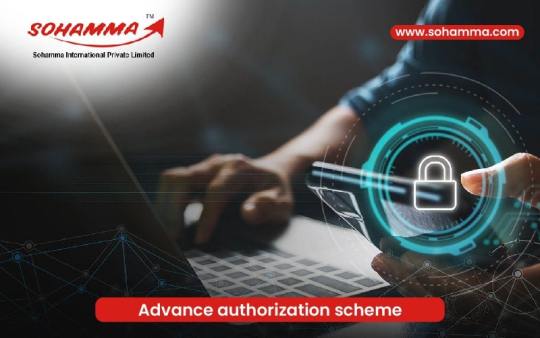#EPCG vs Advance Authorisation eligibility
Explore tagged Tumblr posts
Text
Advance Authorisation Scheme vs. EPCG Scheme: What’s the Difference?

When it comes to promoting exports, India has set up several schemes to facilitate and incentivize corporations. Among these, the Advance Authorisation Scheme and the Export Promotion Capital Goods (EPCG) Scheme stand out as important equipment for exporters. While both schemes aim to decorate export competitiveness, they fluctuate appreciably of their structures, eligibility criteria, and benefits. In this weblog, we can explore the important differences between the Advance Authorisation Scheme and the EPCG Scheme, helping businesses determine which choice is ideal for their wishes.
1. Understanding the Schemes
Advance Authorisation Scheme is designed to allow exporters to import inputs and uncooked substances duty-loose, which can be vital for generating goods with a view to be exported. This scheme pursuits to reduce the value of production for exporters, thereby boosting their competitiveness within the international marketplace.
On the other hand, the difference between Advance Authorisation and EPCG permits import of capital goods at zero customs responsibility for generating items to be exported. The number one consciousness of this scheme is to inspire modernization of manufacturing centers and decorate performance by permitting the import of advanced machinery and equipment.
2. Key Differences in Purpose
Purpose of Advance Authorisation Scheme:
Aims to guide exporters by means of lowering the price of uncooked substances required for generating goods supposed for export.
Purpose of EPCG Scheme:
Focuses on enhancing production capability and performance by way of facilitating the import of capital items.
3. Eligibility Criteria
Understanding the eligibility criteria is essential when thinking about the 2 schemes:
Advance Authorisation Scheme Eligibility:
Available to producer exporters and service provider exporters.
Requires a dedication to fulfill export duties based totally at the responsibility saved through responsibility-free imports.
EPCG Scheme Eligibility:
Open to producers and provider companies engaged in export sports.
Applicants must demonstrate a need for capital items so one can beautify their production talents and fulfill export obligations.
4. Key Benefits Comparison
The benefits provided by means of each scheme range, making it crucial for exporters to evaluate which aligns better with their business dreams.
Advance Authorisation Scheme Benefits:
Duty-Free Imports: Import of uncooked substances without customs duty.
Cost Reduction: Reduces the overall production fee, taking into consideration aggressive pricing in global markets.
Flexibility in Exports: Allows exporters to select the substances they want for production.
Advance Authorisation vs EPCG benefits:
Zero Customs Duty: Import capital goods without customs obligation, selling modernization.
Longer Export Obligation Period: Provides an extended time frame (up to 6 years) to satisfy export obligations.
Increased Production Capacity: Enables organizations to enhance their production capacity and fine.
5. Obligation and Compliance
Both schemes impose unique obligations on exporters, but the nature and conditions fluctuate:
Advance Authorisation Scheme Compliance:
Exporters need to export finished items that use the responsibility-free imported inputs inside a special time frame (generally 18 months).
EPCG Scheme Compliance:
Importers must fulfill export responsibilities equal to 6 instances of the responsibility stored, typically within 6 years from the date of issuance of the EPCG authorization.
6. Calculation of Duty Savings
Duty Calculation in Advance Authorisation:
Based on the inputs imported duty-free and the corresponding export cost.
Duty Calculation in EPCG Scheme:
Calculated based totally on the whole duty saved on imported capital items.
7. Choosing the Right Scheme
When finding out between the Advance Authorisation Scheme and the EPCG Scheme, agencies have to don't forget numerous elements:
Nature of Business: Companies that specialize in uncooked material imports for instant export production may benefit greatly from the Advance Authorisation Scheme, whilst the ones trying to put money into equipment for lengthy-term manufacturing might select the EPCG vs Advance Authorisation eligibility.
Production Capacity Needs: If the objective is to modernize production competencies, the EPCG Scheme is extra suitable. Conversely, if decreasing on the spot production fees is a priority, the Advance Authorisation Scheme has to be considered.
Both the Advance Authorisation Scheme and the EPCG Scheme play critical roles in enhancing India's export potential. While they share the common aim of promoting exports, their goals, eligibility standards, and advantages cater to unique factors of the export technique. Understanding the distinction between Advance Authorisation and EPCG can help exporters make knowledgeable decisions and pick the scheme that satisfactorily aligns with their commercial enterprise techniques.
Whether choosing the Advance Authorisation Scheme or the EPCG Scheme, groups can appreciably enhance their operational performance and export competitiveness in the modern-day dynamic worldwide marketplace.
#Advance Authorisation Scheme#EPCG Scheme#difference between Advance Authorisation and EPCG#Advance Authorisation vs EPCG benefits#EPCG vs Advance Authorisation eligibility
1 note
·
View note